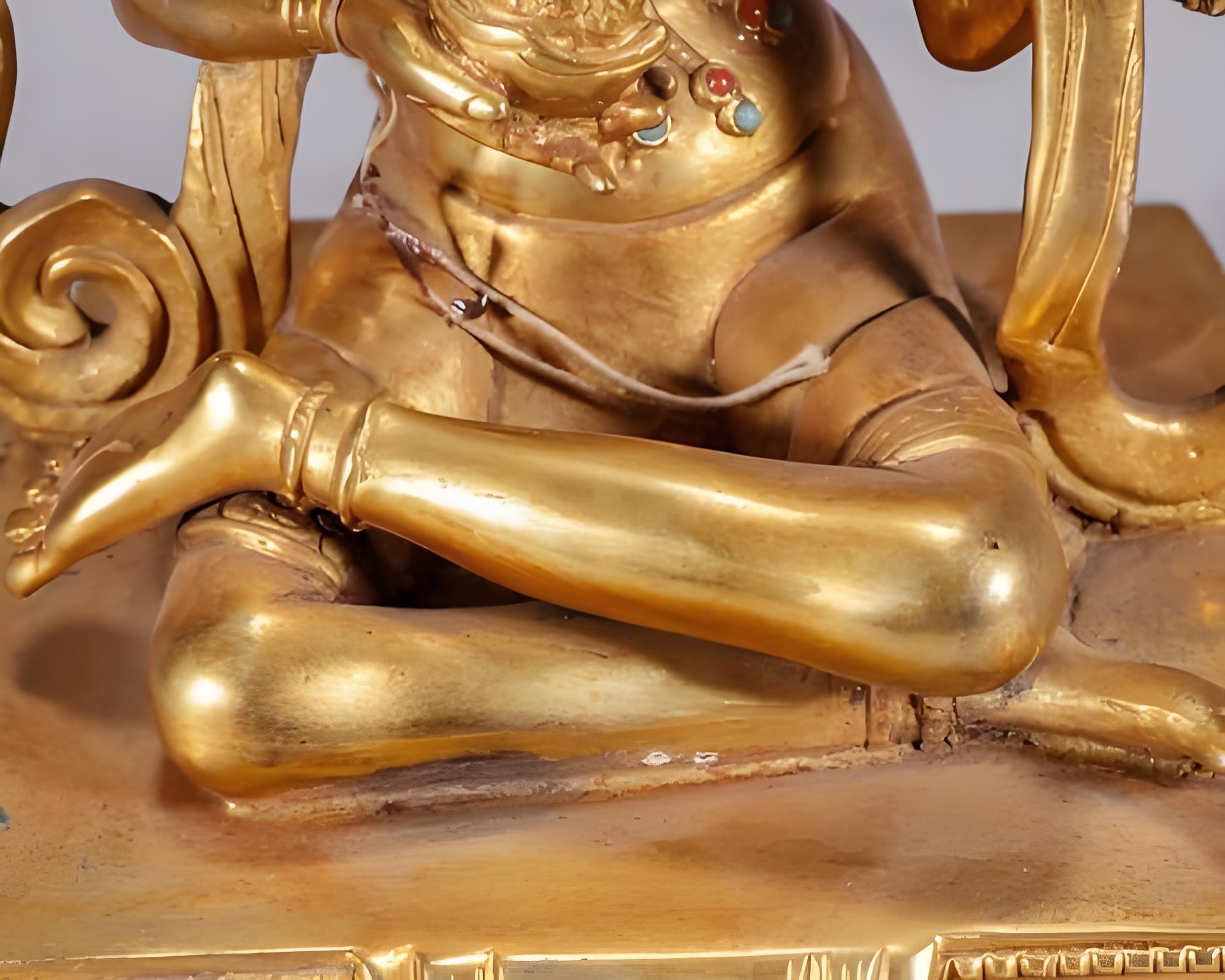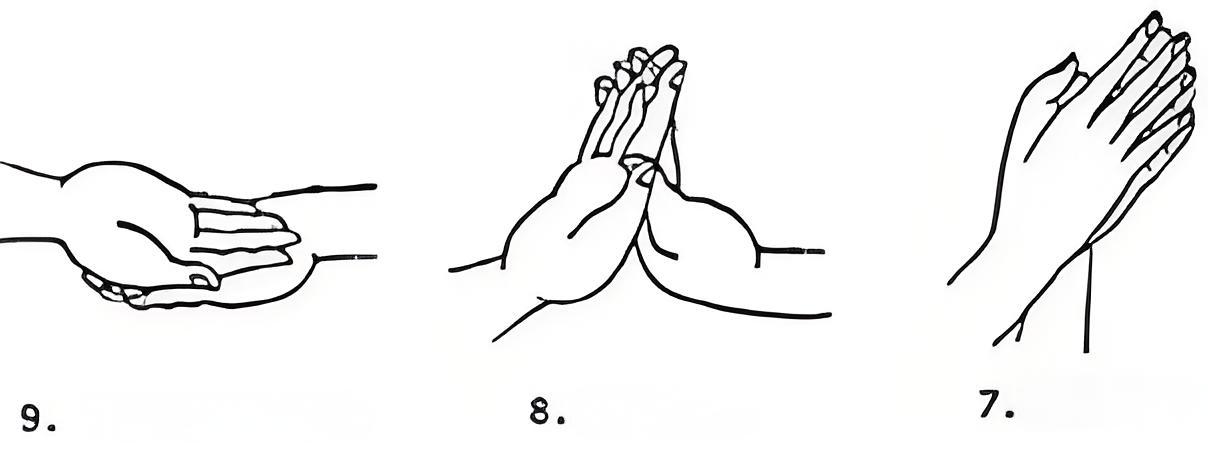type
status
date
slug
summary
tags
category
icon
password
AI summary
Many people seek financial stability and comfort. This desire often leads them to explore various techniques for prosperity. A common tool people discover is the "money mantra." However, the Buddhist perspective differs from merely reciting words to gain wealth. It’s less about accumulating possessions. Instead, it's about fostering inner peace and understanding our relationship with material goods. True wealth comes from wisdom and compassion. Buddhism teaches us that attachment causes suffering. Therefore, we should cultivate detachment from our material wants. Instead, we should find contentment.

Furthermore, Buddhism emphasizes the impermanence of all things. Material wealth can disappear, and thus focusing only on money creates insecurity. Therefore, by practicing generosity and living mindfully, we nurture inner richness. This practice helps one understand what truly makes them feel happy. Moreover, when you understand this concept, it may naturally lead to abundance in different forms. In turn, this view supports ethical wealth creation and reduces greed. It promotes using wealth for good in the world. Therefore, we find genuine fulfillment not through money, but through virtuous actions and compassion. This ultimately changes the core of our perception regarding “money mantra” and its meaning.
The Buddhist View on Wealth and Possessions
The Buddhist teachings do not condemn wealth. However, they advise that the source and utilization of riches are vital. For example, right livelihood forms part of the Noble Eightfold Path. Right livelihood is about earning money through honest and ethical means. Consequently, Buddhism also highlights the dangers of greed and attachment to money. For instance, clinging to possessions often results in dissatisfaction. Therefore, the teachings stress that accumulating wealth for its own sake is unproductive. Furthermore, it doesn’t lead to true happiness.
Moreover, a "money mantra", from this perspective, isn't a magic formula. Instead, it's a path towards a conscious relationship with wealth. By cultivating gratitude, contentment, and generosity, one cultivates inner wealth. Additionally, understanding the impermanent nature of money can further release anxiety. When our primary source of fulfillment is not attached to money we can experience more calm and gratitude. In addition, seeing through these false needs gives us peace. This aligns perfectly with Buddhist principles. Subsequently, focusing on our spiritual and personal growth rather than material items may attract greater things.
The Power of Intention and Mindfulness
Intention forms an important part of the Buddhist teachings. Before embarking on anything, intention becomes significant. Consequently, when focusing on financial prosperity, it matters why we desire it. Therefore, our "money mantra" should connect with compassion. This also highlights using it as an act for personal growth and kindness towards all beings. When our intent involves harming others it contradicts our values.
Furthermore, mindfulness guides our interactions with wealth. Consequently, instead of spending thoughtlessly we should develop mindfulness regarding our needs. This mindful approach supports us by making choices aligned with values. Likewise, gratitude for what we have changes the desire for unnecessary accumulation. Also, practicing generosity and offering support cultivates good karma. In addition, understanding that happiness does not lie in things, the process leads us to peace. Therefore, our focus moves toward actions rooted in kindness and wisdom. Furthermore, our mantra starts to echo those sentiments. This approach guides us to live a life of integrity.
Practicing a Buddhist Approach to Wealth
How can we practically align with these principles in our life? For example, instead of just focusing on material gain. Moreover, consider incorporating mindfulness practice during daily activities such as spending. Therefore, think if your desires are genuine needs or arise from wants. This thoughtful approach transforms spending into a meaningful habit. For example, ask: is this choice motivated by compassion? In addition, remember to be grateful for everything you receive.

Besides that, practicing dana or generosity becomes essential to grow inner wealth. Dana represents an ancient concept about giving without any expectation. By sharing with others it can enhance joy for both parties. However, these actions also build good karma. This encourages wealth to flow, but in an ethical manner. Remember a "money mantra," when rooted in generosity, changes from selfish greed. This results in kindness toward all. Moreover, the practice connects our intentions with positive outcomes. Through that, we can shift our actions to generosity, contentment and mindfulness. Also we grow our capacity to live aligned with Buddhist principles.
Meditation and Your “Money Mantra”
Meditation offers a profound means to work with your thoughts about money. Regularly practicing this form can assist you in watching your thoughts pass without becoming consumed by them. Therefore, with regular practice you observe how your mind often thinks about the idea of abundance. By doing this process, we cultivate detachment. We will be able to notice our craving without getting dragged by it. Moreover, we develop a mindful way to interact with money in our daily life. For example, as your thoughts appear during your sitting, you acknowledge the feelings without reacting. Instead, by bringing our minds back, we begin to build a more peaceful and less stressful association with money.
Furthermore, meditation supports you in accessing deeper wisdom. It encourages us to release from conditioned desires that lead to suffering. We find this suffering through craving wealth and possessions. It also allows for awareness about attachment with our monetary assets. These habits may help guide one toward true contentment that lives independent of your financial stability. This wisdom aligns our thoughts, intention and practices with what Buddhism intends. In addition, it creates a life more balanced. Furthermore, the insights you have during sitting meditation impact your daily choices about wealth and money management. These habits move your intention of financial stability to a path to personal development.
Using a Buddhist “Money Mantra” in Daily Life
Beyond meditation practice, you can use a “money mantra” as a mindful affirmation. For instance, this could be an internal intention or verbal repetition, done with wisdom. Therefore, consider phrases like “I am content with what I have,” or "May my actions bring benefit to others.” These types of positive declarations shifts your mind from lack toward gratefulness and abundance. This may start to transform negative or craving-focused mindset. By constantly changing our intentions through the mantra, we nurture an attitude of generosity.
Also, a mindful affirmation shifts your inner conversation into the practice of the “right speech” element. When used through Buddhist ideals, it impacts the conscious intention behind the spoken words. This brings attention and purpose when using this “money mantra” tool in daily life. Instead of aiming solely for personal benefit, intention must aim toward harmony with oneself and all. Consequently, these concepts help us live in ethical manner through compassion and wisdom. This method ensures we are contributing in positive ways rather than with greed. Consequently, practicing Buddhist ethics enriches not only your relationship with wealth, but our own selves.
Transforming Financial Anxiety with Buddhist Principles
Many people suffer from constant anxiety linked to finance. Therefore, by understanding our worries related to wealth through Buddhism, we discover how to manage those concerns. For example, it points out the root of such stress: our attachment to external situations and expectations. Furthermore, understanding the Buddhist teachings that remind us about impermanence reduces attachment. This also lets us see that these conditions are changing. Likewise, understanding that wealth is like a flowing river. There can be periods of abundance and periods of drought. Therefore, by understanding and releasing that we may feel financial freedom.
Furthermore, meditation offers an essential resource for us to handle emotional tension linked with money. Likewise, by noticing when feelings surface, you start recognizing a trend of habits. This offers insight about how you are relating to that process. This detached observation leads us toward an acceptance that helps ease financial related anxieties. Then you shift away from compulsive or anxious responses that lead you to harm or stress. These strategies may help to calm stress related to finance. Therefore, a ‘money mantra” from the Buddhist tradition has many angles. They can help us find genuine contentment in wealth while letting go of unnecessary worry. This understanding also allows space to grow and develop inner wealth by understanding our real needs and actions that truly matter.
The Path to True Wealth and Happiness
Buddhism gives many effective ways that help people cultivate genuine wealth. Instead of just depending on accumulation of wealth, Buddhism emphasizes values such as contentment, compassion, and mindfulness. When one integrates these, this not only improves finance but also your well being and outlook on the world. Remember that genuine joy is less about monetary items and more about inner riches. Furthermore, when people adopt these ideas they grow a genuine and conscious connection with their resources. In addition, the goal turns towards building sustainable actions for everyone's growth.
Also a “money mantra,” within this framework is not a simple spell to gain money, it represents transformation and growth. The mantra also serves as an intention, used consciously to reflect Buddhist ideals in every action that connects to money. Ultimately, the teachings emphasize inner peace. When our aim becomes clear then the process changes, impacting wealth accumulation for the betterment of the planet. Ultimately true happiness comes from this ethical manner, and not the result of simply focusing on possessions. This path connects to peace, not the illusion of control linked to greed.
In Conclusion, these Buddhist principals offer valuable support on our path to understand the real value of our inner abundance through conscious practices. The most powerful “money mantra,” is cultivated through intention, mindfulness, and action in line with these teachings.
Loading...






